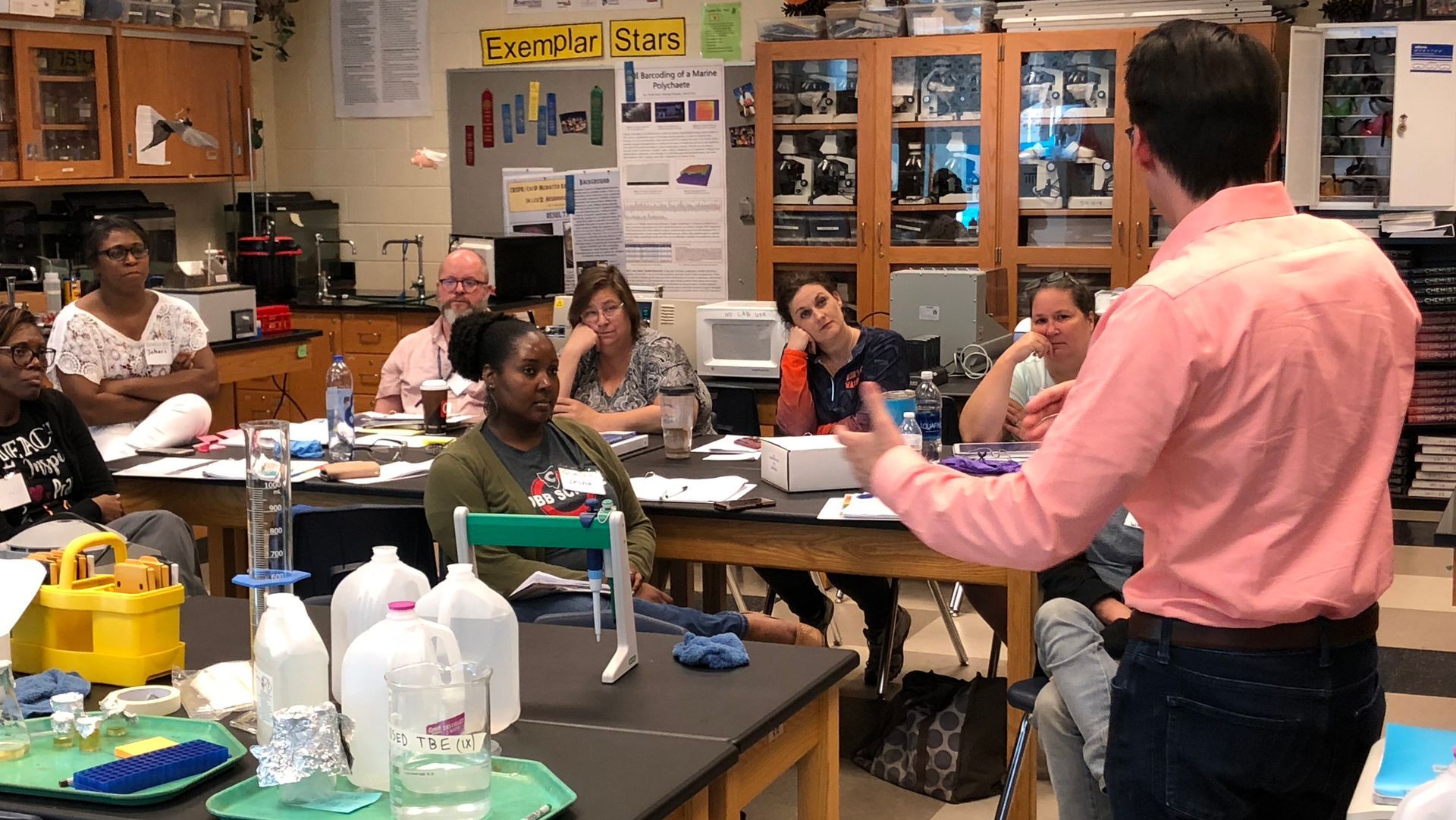As the leading advocate for the state’s dynamic and diverse life sciences sector, Georgia Life Sciences promotes policy development, community programs, industry initiatives, and events, as well as the research and products of its associated member and partner organizations.
Policy & Advocacy

Advance life sciences innovation through policy and advocacy leadership at all levels of government
Workforce & Talent

Establish Georgia as a center for excellence in life science workforce training and talent development
Economic Development

Provides expert advice and guidance to help companies find suitable locations and resources as they move to and grow in Georgia
Entrepreneurship

Connecting innovators and companies to the resources that accelerate growth —strategic collaboration and partnerships across Georgia’s life sciences ecosystem
Networking

Foster connection by convening thought leaders around relevant industry topics and peer-to-peer exchange opportunities
Cost Savings

Curated discounts on products and services critical to running a successful business
Upcoming Events
Recent News

Member Benefits
Be Part of Our Growing Community
By joining Georgia Life Sciences, you will be part of a vibrant community that is making significant strides in growing the bioscience industry in our state. We conduct economic development activities; advocates on behalf its members on public policy matters; educates the public about the benefits of life sciences research and product development; and provides a network for idea exchange and cooperation.
Leverage the Power of Georgia Life Sciences: Become a Sponsor
Georgia Life Sciences’ sponsorships unlock unparalleled access and influence within the state’s life sciences industry. Go beyond traditional event sponsorships and engage directly with a multifaceted ecosystem through our combined reach across exclusive programming, key initiatives, events, media channels, and industry association networks.
Why Join Georgia Life Sciences?
Membership in Georgia Life Sciences connects you with all facets of
our sector and helps cement your place in a community that shares the vision of improved health and a better world. We are the unified voice among key stakeholders and leading convenor for partnerships and strategic collaborations.





